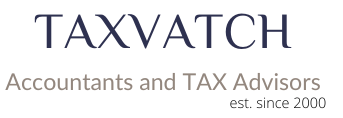- Keep accurate records of all transactions, including sales, purchases, expenses, and VAT charged and paid.
- Determine your VAT registration status based on your business turnover and register for VAT with HM Revenue & Customs (HMRC) if necessary.
- Ensure that your VAT returns are filed and paid on time, usually quarterly, using HMRC’s online system.
- Check that you’re claiming the right amount of VAT for each transaction and that you’re charging the correct amount of VAT to your customers.
- Be aware of the different VAT rates and exemptions that apply to different goods and services, and ensure that you’re applying them correctly.
- Consider using VAT accounting schemes such as the flat rate scheme or cash accounting scheme, which may simplify your VAT reporting and reduce your VAT liability.
- Monitor your VAT payments and receipts carefully to ensure that you’re not overpaying or underpaying VAT.
- Keep up-to-date with any changes to VAT rules and regulations, and seek professional advice if you’re unsure about any aspect of VAT.
- Be prepared for VAT inspections by maintaining accurate records and ensuring that you’re complying with all VAT regulations.
